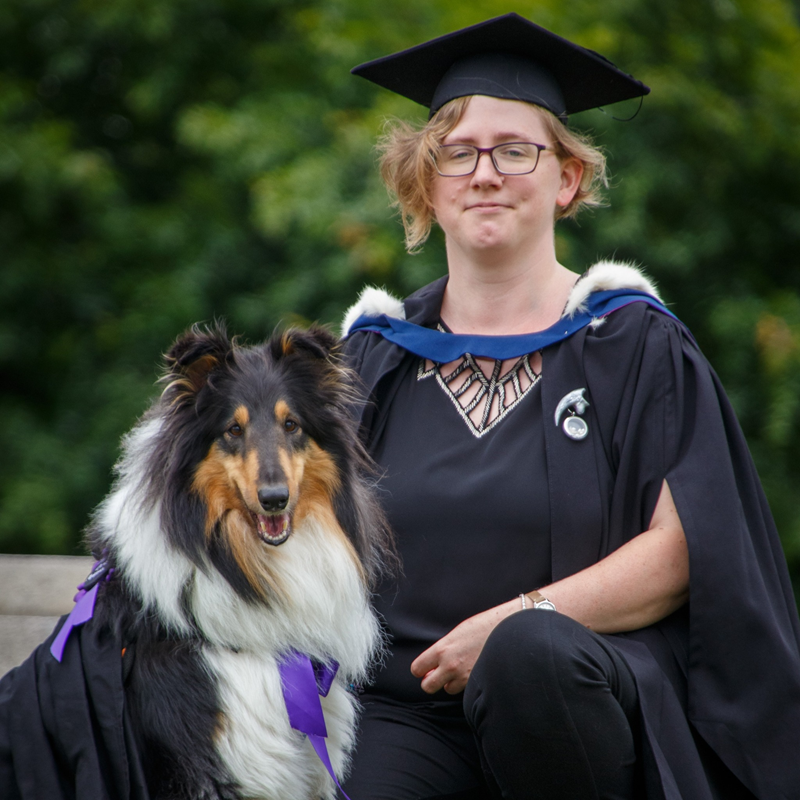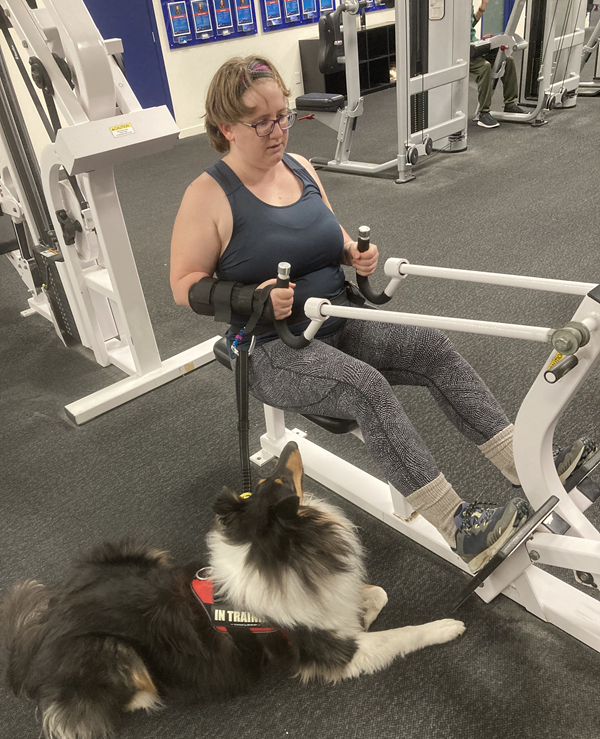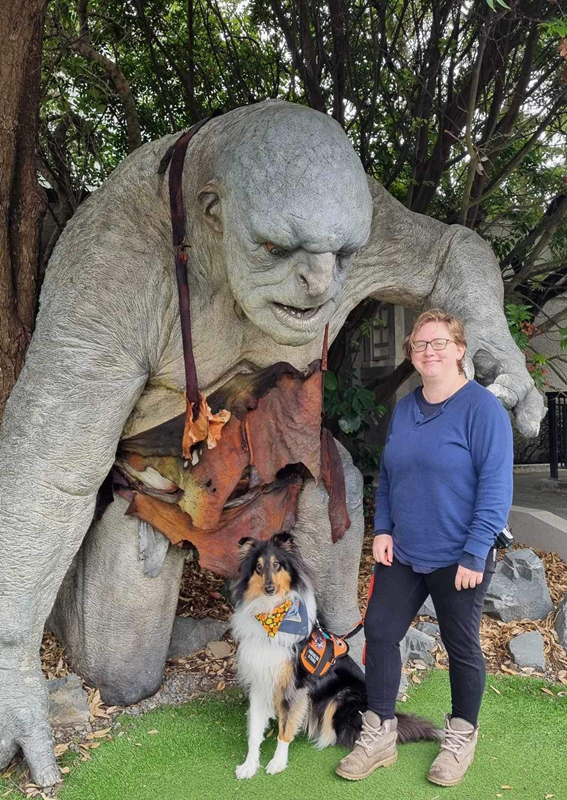
Breaking barriers in Veterinary Science with grit, perseverance and community support
Growing up in Auckland in an old villa with cats, mice, locusts, and guinea pigs, animals have always been a part of Len McArdle’s life. Their first word? “Duck,” thanks to the ducks at Western Springs. Any passing cat would immediately be met with grabby hands and excited noises – a habit that, according to Len, hasn’t changed much over the years.
Len’s love for animals deepened when their parents, during a trip to England, found the largest horse they could – a towering Shire – and placed toddler Len on its back. A photo from that day captures the moment perfectly: pure, unfiltered joy on their tiny face. That passion for animals never faded, eventually guiding them to Massey University to study veterinary science.
However, Len’s journey to becoming a veterinarian was anything but conventional. Before vet school, they spent a decade as a legal administrator in top-tier law firms in New Zealand and Australia. Eventually, they realised they would rather work with actual cats than lawyers. “You can also sedate angry cats,” they say.
Persevering through extraordinary challenges
Becoming a veterinarian requires years of intense study and hands-on training, but for Len, the road was even more demanding. “During my education, I managed divorce and burn out; was diagnosed with, and treated for, a wide array of neurological issues including chronic fatigue and chronic skeletomuscular pain, and a condition known as Suicide Disease due to the severity of pain it induces,” Len says.
On top of this, Len had to navigate the loss of their first pets, an emotional blow that added to an already overwhelming journey. “To fully explain my challenges would take an age,” Len says. “But in short – I pushed through severe illness, pain, and loss. I managed it all by telling myself, ‘Just put one foot in front of the other and don’t look any further than that.’”
Despite these challenges, Len refused to give up. They credit their perseverance to determination, a strong support system of friends, family, and classmates, and a belief that they belonged in veterinary medicine.
A community that made all the difference
Len acknowledges that their success wasn’t achieved alone. During their time at Massey, Len received massive support from Disability Services, which allowed them to have alternative examination arrangements. The university’s medical team also played a key role in diagnosing, referring, and treating their conditions so they could continue their studies.
The Veterinary School allowed Len’s Disability Assistance Dog, Andromeda (Andi), on campus before she was officially certified. “The vet techs were my angels,” Len says. “They made sure I had a stool to perch on during practical, watched over me when I was struggling, and always cheered me on.”
“My classmates, oh, how I would not have gotten through without them. I was anxious about joining a new class and was immediately enveloped by amazing humans and true friendship. They helped me unendingly by giving me their (nicely organised) notes to revise from, helping explain things I couldn’t wrap my head around, and supporting me through some of the more challenging practical aspects of the final year,” Len shares.
But the most unwavering support came from Andi, Len’s loyal collie and Disability Assistance Dog. “She kept me from face-planting when my body decided to faint, kept me upright during vertigo spells, and was my constant companion through every challenge,” Len shares. Thanks to the K9 Search Medical Detection (K9SMD) team, Andi became a fully certified Disability Assistance Dog, allowing Len to navigate life with the extra support needed.

Walking the stage, together
Walking across the stage alongside Andi, having Chancellor Alistair Davis cap them both during the Manawatū graduation ceremony, was a moment they will never forget. “I don’t believe words can capture that feeling. It wasn’t just a triumph for me but for everyone who supported me. Seeing Andi get the recognition she deserved meant more to me than I can ever express.”
Beyond celebrating their achievement, Len hopes their journey sends an important message: disabled individuals can accomplish just as much as anyone else, even if it takes a bit more admin and a lot more perseverance. “I want other disabled people to know they are allowed to receive support, and it’s okay to be openly disabled,” they say.
Len shares the advice to disabled students who are thinking about studying veterinary science, “Do it, but do it knowing it is going to be much more difficult for you. Getting through vet school as an abled person is difficult. Getting through vet school as a disabled person is even more so. The destination is still worth it.”
“Gather your community, get your cheer leaders ready to cheer you on, get in contact with the Disability Services and tell the Vet School about your disabilities. Get the accommodation you deserve to succeed like a ‘normal’ person. Have everyone on board and on the same page. You can do it, but it is a community effort,” Len shares.
What’s next for Len?
Len is now preparing for the next chapter – a career in veterinary science. They hope to secure a clinical role in a supportive environment and eventually expand their expertise in acupuncture for animals.
As for Andi? “She’s not ready to hang up her Super Suit just yet.”
